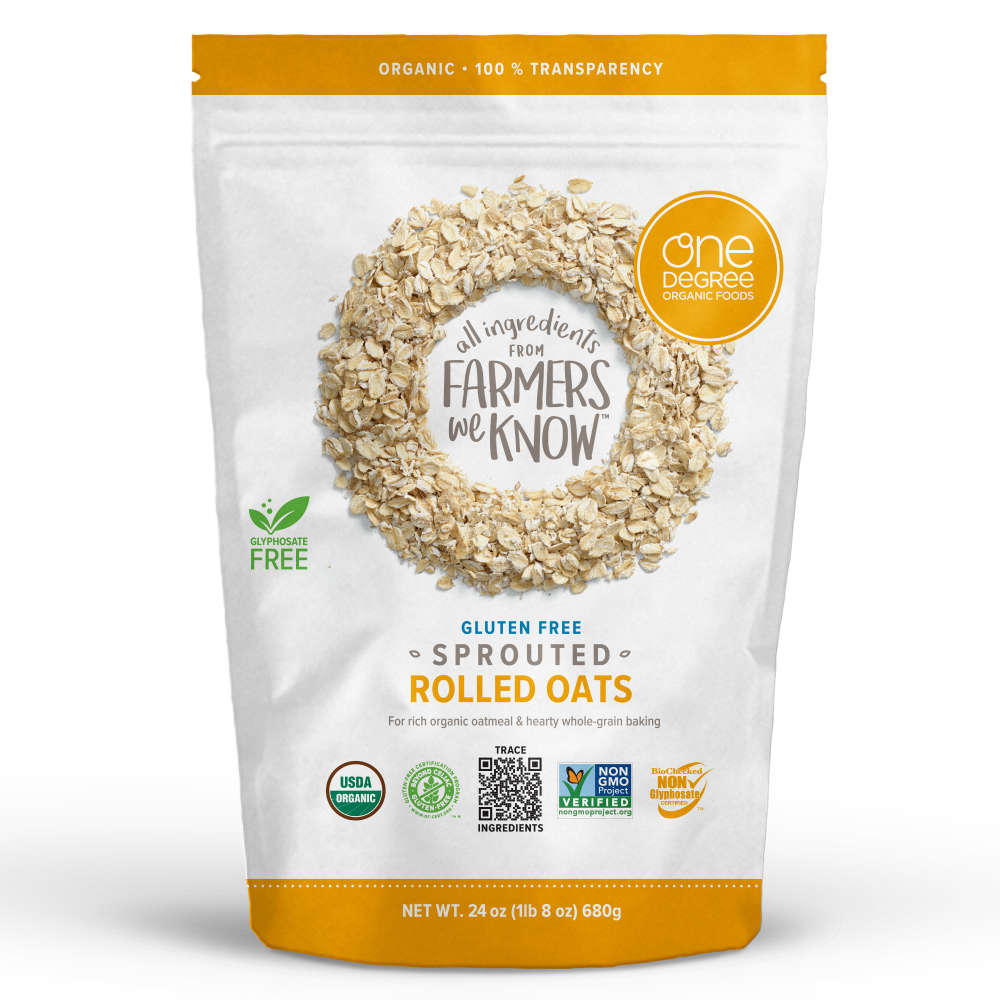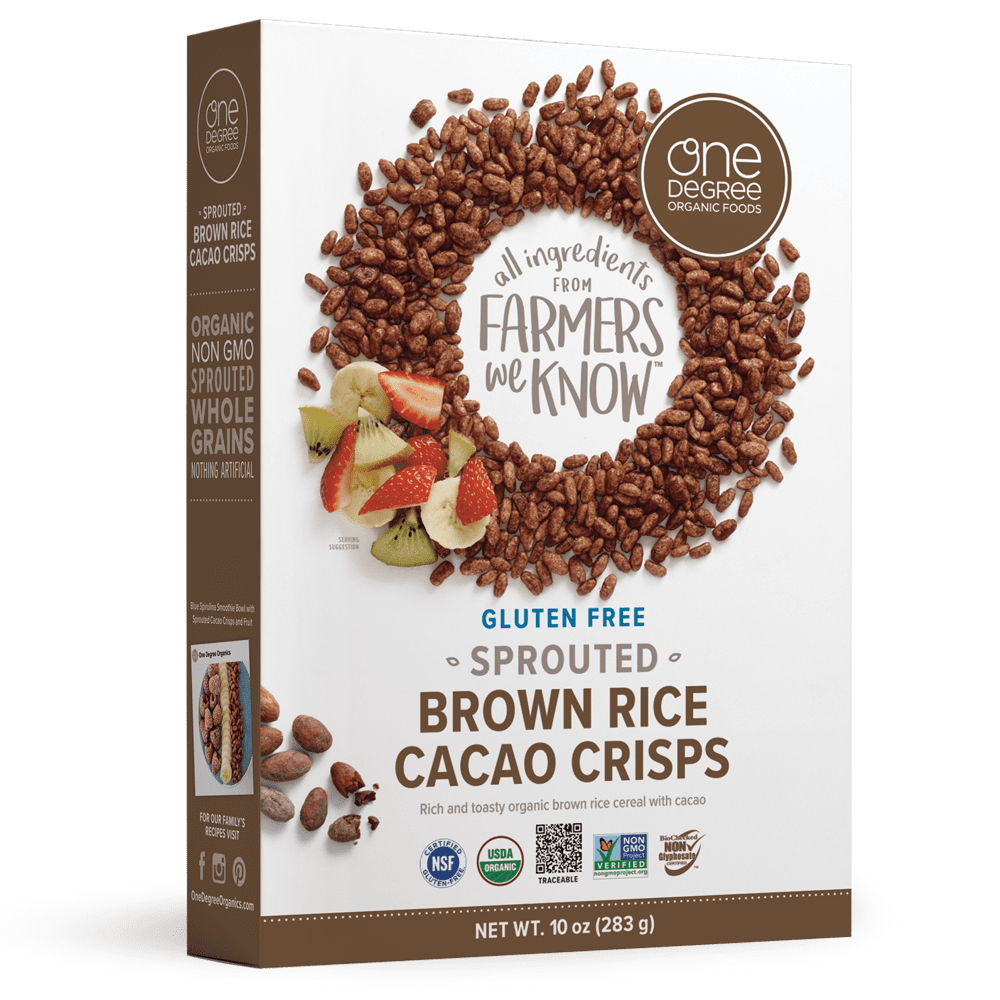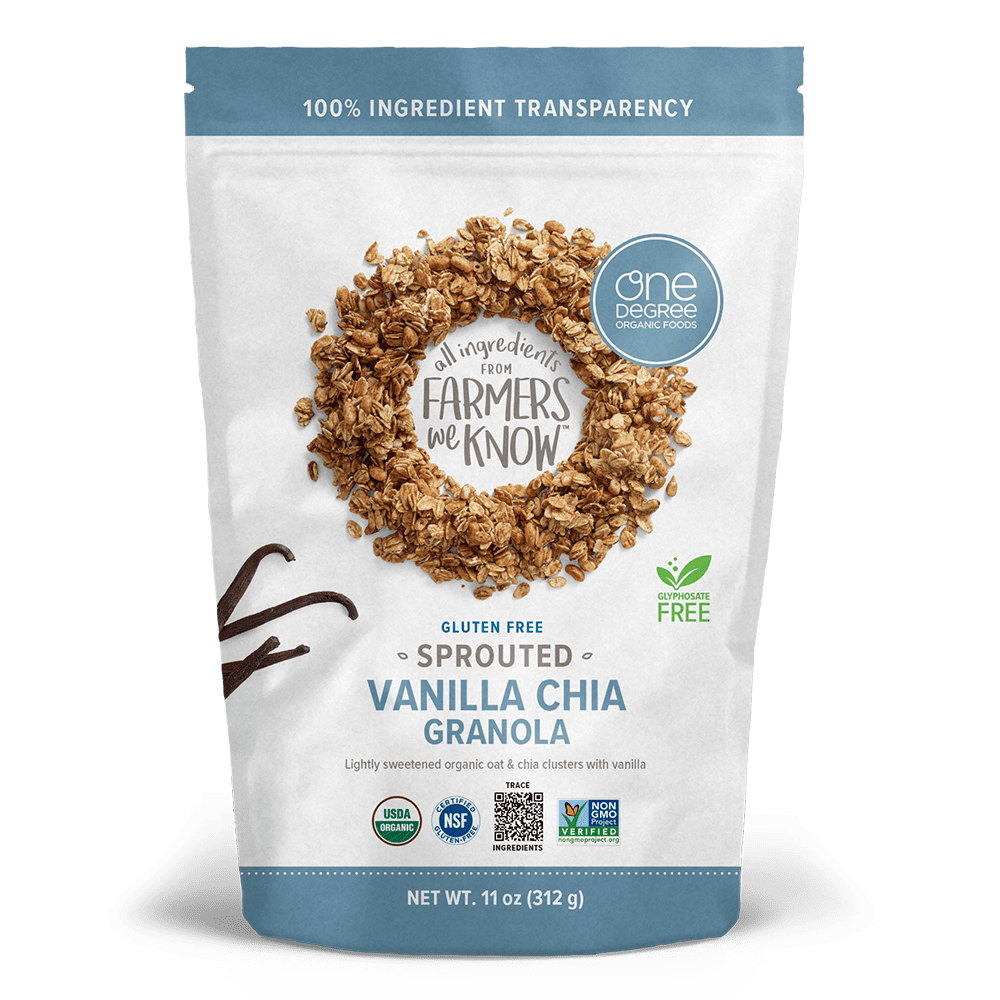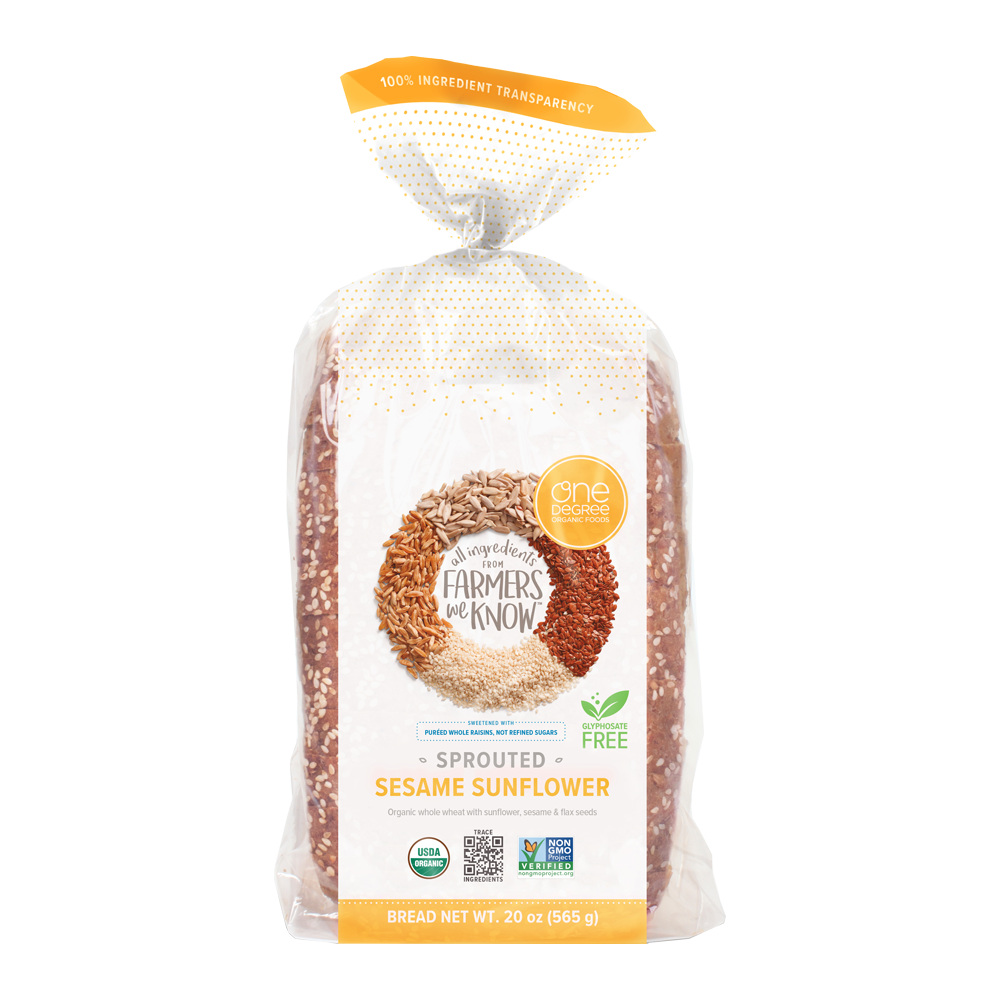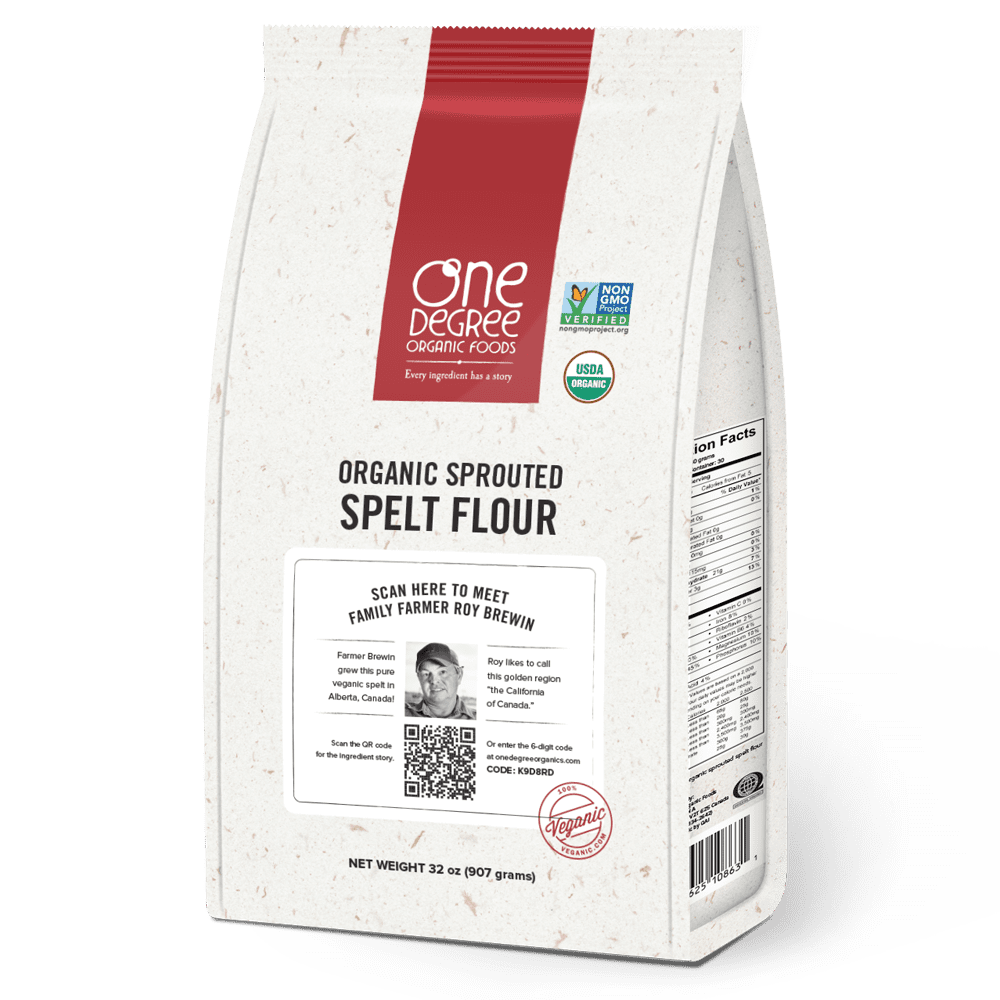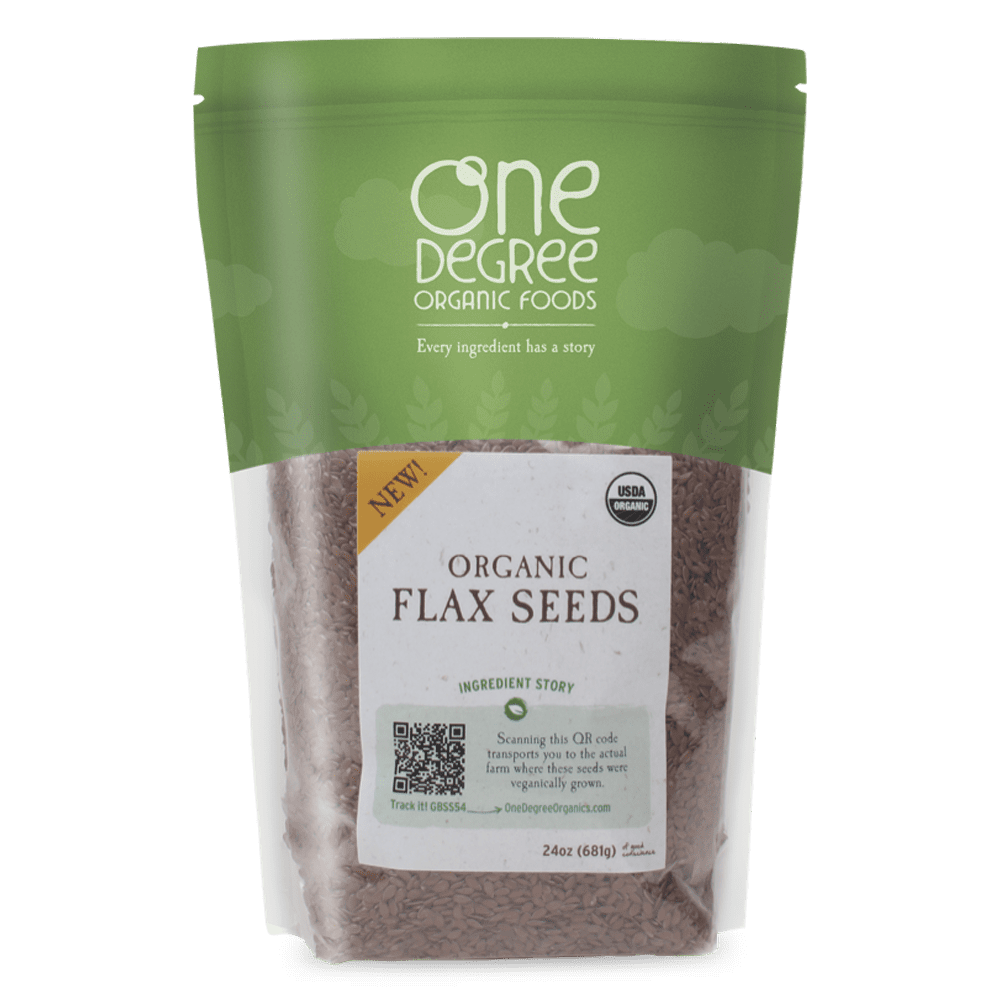The Earth-Saving Genius of Sustainable, Plant-Based Farming
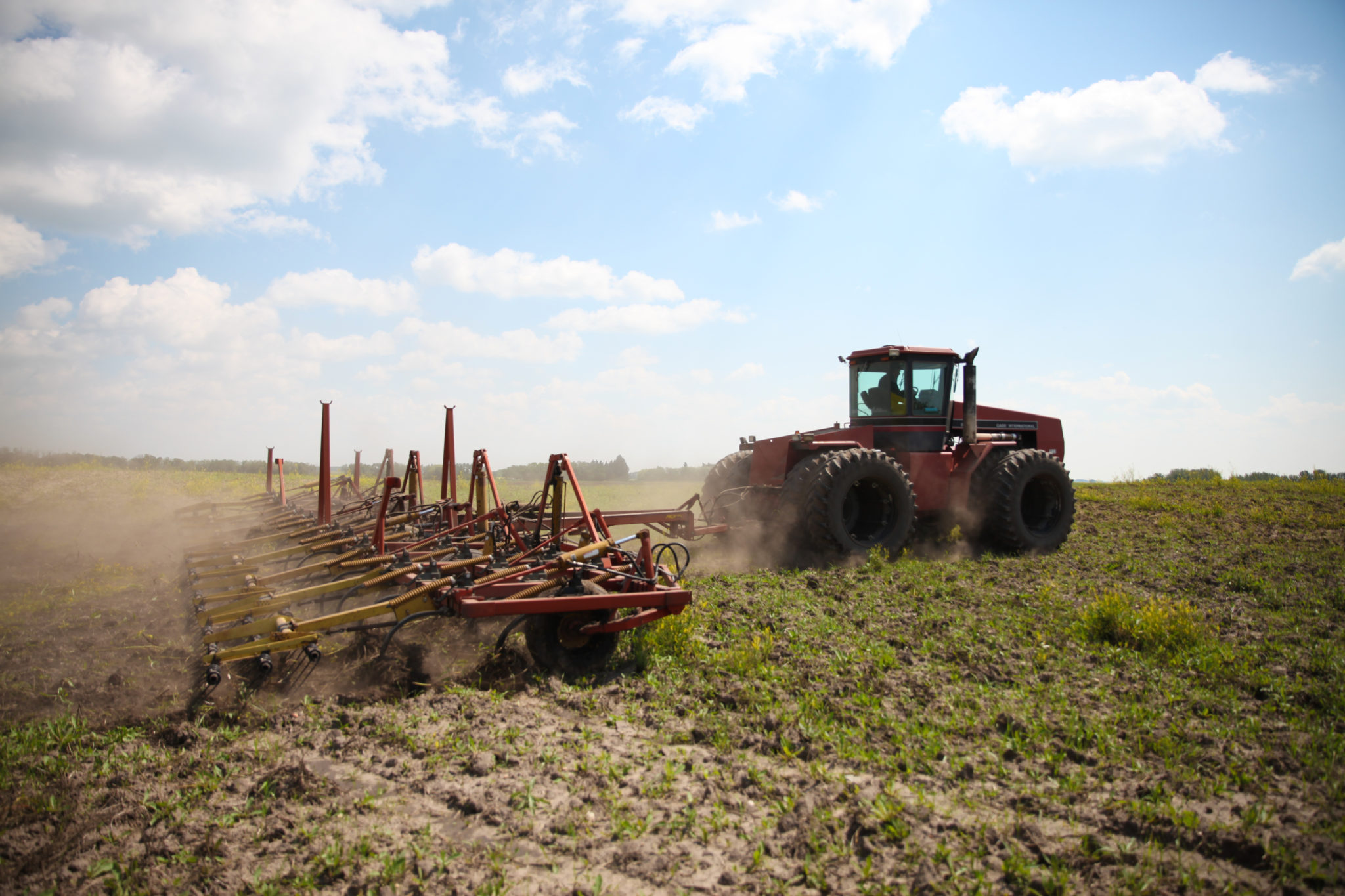
What if we could all support and help build a totally sustainable farming system—one that puts energy back into the earth, leaves animals out of the equation altogether, and draws on existing harvests for fertilizer? That’s what we try to accomplish at One Degree Organics by selecting our organic ingredients only from farmers who use veganic, plant-based farming methods in the production and harvest of their crops.
Sustainable, Plant-Based Farming Means Saying No to Animal Fertilizer
Excess emissions and animal agriculture are intrinsically linked. In a January 2018 New York Times report on meat agriculture’s impact on global warming, the outlet reported, “According to the latest thinking… farming is responsible for the equivalent of 574 million metric tons of carbon dioxide emissions in the United States each year and 56 million metric tons in Canada. That’s about 8 percent of each country’s total greenhouse gas emissions.”
Nobel Prize-winning physicist and former U.S. Energy Secretary Steven Chu recently gave a lecture at the University of Chicago that was profiled by Forbes. Says the business site, “Chu lumped the greenhouse gas emissions from meat and dairy with other agricultural practices, such as fertilizer, and land-use changes, such as deforestation and soil disruption. He weighted the resulting greenhouse gases for lifetime and potency, showing that emissions from agriculture are a bigger problem than emissions from energy.” Chu underscored this himself once more: “Let me say it again: agriculture and land-use generates more greenhouse gas emissions than power generation.”
The evidence is clear: animal agriculture in any form is a massive contributor to greenhouse gas emissions. By steering clear of all animal products in One Degree Organics products and in partnering with committed organic growers and producers who avoid animal fertilizer at all costs, we contribute to the health of the planet instead of its demise. In fact, many of our partners use the leftover harvest crop as pure plant-based fertilizer that goes right back into the soil.
At River’s Edge Organic Farm in Barrhead, Alberta, oat farmer Eldon Kebernik uses green manure (a crop grown specifically to help with plough-down and build nutrients for the following crop to grow) as well as summer fallow to control some of the weeds. Alfalfas left on the soils help it all decompose and add nutrients, and because no herbicide is used, beneficial insects stick around to help with the process.
Crop Rotation
When it comes to finding rich soil to grow plant-based crops, energy transfer is key. As our farmer partner Rainer Schalk of Schalk Muehle (sunflower seeds, pumpkin seeds) explains, “Crop rotation is very important for nature and the soil. If you plant every year the same crop, like sunflower seeds or corn, you’ll have bad impact on the soil, nature, the animals … and that’s not the way nature works. Organic farming is much closer to nature than conventional farming, and that’s what we’re looking for.”
As he sees it, for crop rotation to work well, you need to first start with something that brings energy in, such as peas; follow that up with something like wheat or sunflowers, that need more energy; and continue on this alternating cycle. Since crop rotation helps produce more fertile soil, the farmers don’t need to fall back on—and choose not to)—animal manure, keeping every One Degree ingredient totally organic, plant-based, and nutritious.
Setting a Good Example
Whether it’s Earth Day or the other 364 days of the year, our commitment to growing and producing organic food in the most sustainable, plant-based way is always top of mind, and along with our belief in total food transparency and non-GMO crops, we hope that leading the way in sustainable farming can be a cornerstone of our One Degree Organic Foods legacy. As co-founder Kathy Smith puts it, “I’m voting with my fork, whether I know it or not.”
Want to know more about our farming practices? Get to know our farmers.
P.S. – we’re also glyphosate-free, guaranteed.
Learn more about plant-based farming and voting with your fork through organic ingredients and delicious, plant-based recipes. Scroll down to sign up for our newsletter, and follow us on Instagram and Facebook for more!
